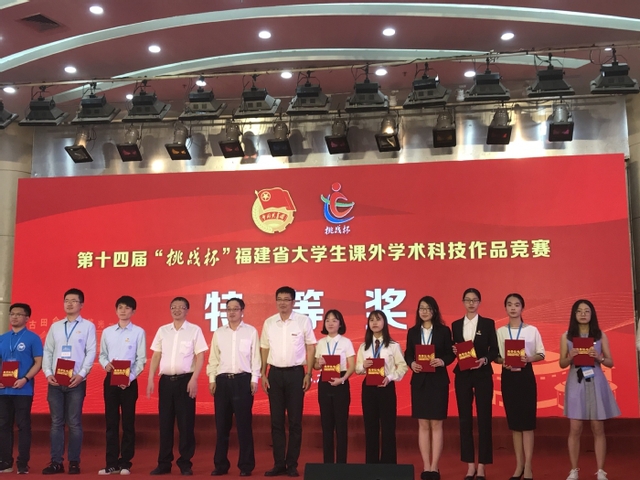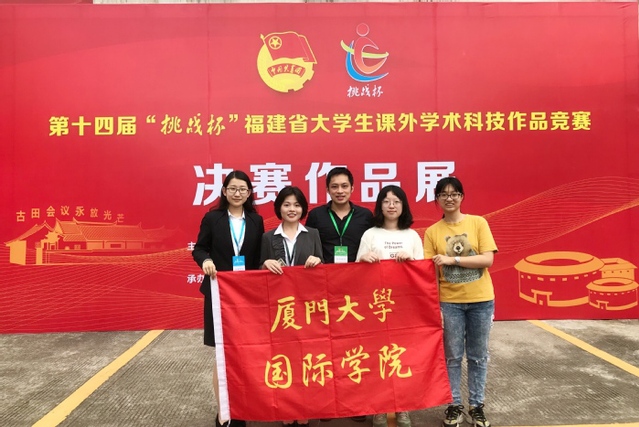On May 25th, The Fujian University Students Extracurricular Academic Science and Technology Works Final of the 14th “Challenge Cup” was held at Long Yan College. 118 scientific inventions and social science papers from 30 universities and colleges across the province entered into fierce competition. Under the guidance of Professor Hong Bing, the competition piece “Start a New Fire and Make New Tea : An exploration in High Quality Development Models for the Clean Tea Industry” —— An Investigation based in An’Xi County, Fujian Province”took the provincial grand prize of this Challenge Cup after several rounds of strict selection. This project was a collaborative effort by 8 undergraduate students from the 2019 class of the Dublin Project, such as Shu Jiang Sheng, and has received the highest score obtained by the college in this event to date.

Competition team members, after applying what they had been learning in their major to hot topics they followed concerning peoples’livelihood, chose to situate their topic in the context of Clean Social Development in the Fujian tea industry. With active cooperation between the college and various departments of the An’Xi County government, the team members went deep into An’Xi county and successively carried out 11 investigations during the course of the research. With the warm reception and strong support of various government departments, the An’Xi Tea Collge of the Fujian Agriculture and Forestry University, industry associations, local tea enterprises, tea merchants, tea farmers and tea farmer cooperatives, the team obtained a large amount of first-hand information, compiled relevant interviews and other related materials of about 150,000 words, and gained a comprehensive understanding of the development of the An’Xi tea industry. They wrote a well-founded investigation report based on data aquired from research in combination with a large amount of literature and government policy documents. While summarizing the development model unique to the tea industry of An’Xi County, the team tried to supplement the model and build a high-quality development model of the new clean tea industry to provide new ideas for exporting transformation and upgrades in the tea industry, county economic development, as well as tea brands.

The concept of the work is far reaching, the content is comprehensive and detailed, and the presentation is wonderful. As a result, it won the praise and full affirmation of the provincial juries at the final competition. From selection during the school competition in December last year to the provincial preliminary and semi-final in May this year, the college has fully supported the team members in the preparation process and has completely covered areas such as field research, writing, and funding. On the eve of the provincial competition, the college also organized a mock oral defense. Professor Hong Bin, Professor Duanduan Chen and the Deputy Secretary of the Party Committee Junfeng Luo participated in the defense. They discussed the details of and skills for the defense and laid a solid foundation for the successul results.

The Challenge Cup National College Student Extracurricular Academic Science and Technology Competition was launched in 1989. It has become the largest and most influential university student science and technology innovation event in the country. It is held every two years and is regarded as the Olympics of scientific and technological innovation for contemporary university students. The college attaches great importance to the in-depth promotion of students' innovation and entrepreneurship education and works to strengthen practical application of that education. The good results of the “Challenge Cup” competition is also an affirmation of the college’s efforts in recent years. Next, the college will continue to guide the team members in preparations for the Challenge Cup national competition and fight for a good score in this competition. At the same time, the college will also actively explore the construction of an innovation and entrepreneurship educational model, integrate innovation and entrepreneurial education into daily work, continuously improve the quality of personnel training, and comprehensively develop the school as a double first-class institution.